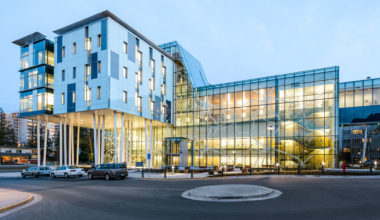This year marks the fifth anniversary of Databinge, an initiative launched to provide students and faculty the opportunity to present research problems and to troubleshoot issues with data, code or experiments, and to bounce ideas off colleagues. Databinge was spearheaded by the NeuroImaging and NeuroComputation (NINC) team, and led by Dr. Tim Murphy and Jeff LeDue, with the intention of building community around the NINC, which was only a year old at the time Databinge launched.
“Databinge really embodies the principles of open science, where you talk about the work you’re doing very early on in the process, embrace new methods and make sure people are being supported in their efforts,” says LeDue.
To celebrate its fifth anniversary, we took a look back at some Databinge milestones.
2016: Databinge kicks off weekly Friday meetings, with an initial theme of looking at various Research Software tools, everything from illustrations and animations to Git and Github, to reference managers and python apps.
2017: NINC becomes the physical site of the Dynamic Brain Circuits Research Excellence Cluster with Databinge serving to build community and augment training with a variety of themed sessions. This includes lab skills such as imaging and genetics, data analysis and statistics, as well as linux and high-performance computing.
2018: The Databinge team gets involved with the Frontiers in Neurophotonics summer school and develops an “Introduction to Interfacing Computers to the Real World.” Weekly meetups become a place for faculty and students to learn about experimental automation with Raspberry Pis—entire computers the size of a credit card that are ideal because of their small size and low cost.
2019: An increasing emphasis on open science led to the Dynamic Brain Circuits Cluster white paper on Data Sharing and Data Management. This was completed throughout 2019 and was the first Databinge topic of 2020. The whitepaper has become a widely shared reference for engaging in open science practices from a UBC perspective.
2020: In the face of the pandemic, Databinge pivots online via Slack and Zoom, which allows for continuous activity including code sharing and connecting with peers. It has also allowed even more people to connect with the group, because meeting at one time in one place is no longer a barrier. Since moving online, Databinge has 277 members, sending a total of 39,000 messages, with over 50 project channels. It is supported by the Brain Circuits cluster’s Neurodata peer tutors and Open Science Specialist undergraduate coop students.
2021: DMCBH members including Jeff LeDue, Dr. Judy Iles, Dr. Tim Murphy and Dr. Paul Pavlidis secure a grant from the Tanenbaum Open Science Institute to initiate the DMCBH’s Open Science Initiative. The initiative will serve to gauge interest in and develop principles that would eventually see the Centre declared an Open Science Institute. Databinge will be an integral part of this and will support the “nuts and bolts aspects” of DMCBH researchers adopting and improving their open science practices.
Looking to the future: The Databinge team is currently in the process of submitting a proposal with the hope of expanding. The team has been working closely with student groups including BC Children’s Trainee Omics Group and the ICORD Trainee Committee and is keen to pursue a vision where trainees across UBC and beyond are connected through an online Databinge-type forum.
“Part of what we’re proposing to do is have conversations with other groups at Simon Fraser University, the University of Victoria and the Canadian Brain Research Strategy, to see how we can build up Databinge so something similar will exist online for many people to access,” says LeDue. “If someone in Vancouver has expertise in something that someone in Halifax is interested in, they can easily connect. The ideal model is researcher to researcher interactions made possible through an online platform.”
Databinge is supported by the DMCBH and the VPRI Research Excellence Cluster Program support of the Dynamic Brain Circuits Cluster.


